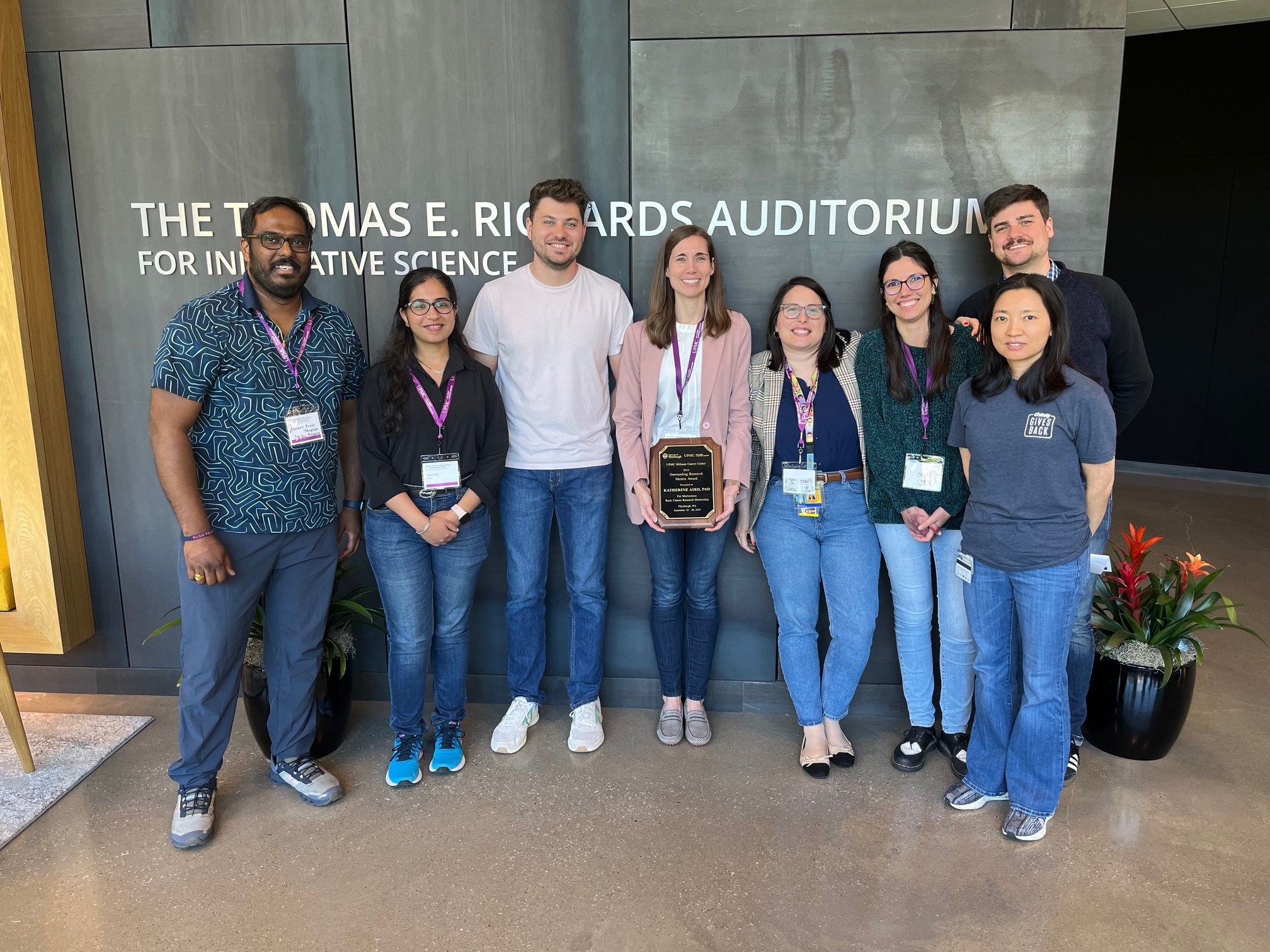It has been a busy summer! Along with the move and Dr. Cole’s defense, we have significantly updated two preprints:
Zinc availability in the tumor microenvironment dictates anti-PD1 response in CDKN2ALow tumors via increased macrophage phagocytosis (https://www.biorxiv.org/content/10.1101/2025.02.08.637227v3)
Raquel discovered that tumors can respond to anti-PD1 without T cells! Mechanistically, this is through a zinc-dependent increase in macrophage phagocytosis, and this is driven through cancer cell CDKN2A-mediated zinc compartmentalization.
The chemotherapy-induced senescence-associated secretome promotes cell detachment and metastatic dissemination through metabolic reprogramming
(https://www.biorxiv.org/content/10.1101/2023.12.02.569652v2)
Newly-minted Dr. Cole discovered that cisplatin drives ovarian cancer metastasis through a metabolic cross-talk between senescent cancer cells with non-senescent cancer cells. We identified fructose as the upstream driver of this phenotype.



